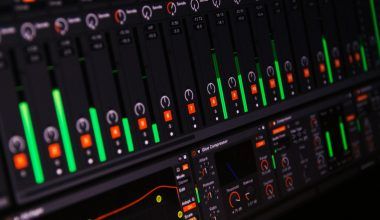If you’re a singer looking to take your recordings to the next level, the right recording mic can make all the difference. Whether you’re a beginner or a seasoned vocalist, understanding microphones and how to use them effectively is key to achieving professional-quality sound. Let’s dive into everything you need to know about selecting, setting up, and using a recording mic for singing.
Why the Right Recording Mic Matters
Have you ever listened to a recording of your voice and felt it didn’t capture your true sound? That’s often because the microphone you used wasn’t suited to your voice. A recording mic for singing isn’t just a tool—it’s your voice’s best friend. It captures the nuances, tones, and textures that make your voice unique.
Different microphones are designed for different purposes. Some are better for live performances, while others shine in a studio setting. When recording vocals, you want a mic that highlights the clarity and emotion of your singing. Choosing the right one can feel overwhelming, but with the right guidance, it becomes much easier.
Types of Microphones for Singing
When it comes to recording vocals, there are three main types of microphones to consider:
- Dynamic Microphones Dynamic mics are durable and versatile. They’re often used for live performances because they handle high sound pressure levels well. While not as sensitive as other types, they can work well for recording strong, loud vocals.
- Condenser Microphones Condenser mics are the go-to choice for studio recordings. They’re highly sensitive, capturing even the smallest details in your voice. These mics are excellent for softer and more nuanced singing styles, making them perfect for genres like jazz, pop, and R&B.
- Ribbon Microphones Ribbon mics have a vintage charm. They deliver a warm, natural sound and are ideal for capturing the richness of a voice. However, they’re delicate and require careful handling.
Understanding the differences between these microphones helps you decide which one suits your needs. If you’re unsure, starting with a condenser mic is often a safe bet for most singers.
Choosing the Best Recording Mic for Singing
Selecting the right recording mic is about more than just type. Here are a few factors to consider:
- Your Voice Type Every voice is unique. Some microphones enhance bright tones, while others bring out the warmth. If you have a higher-pitched voice, a mic that softens sharp frequencies might be best. For deeper voices, one that adds clarity to lower frequencies is ideal.
- Budget High-quality microphones can range from affordable to extremely expensive. You don’t need to break the bank to get a good mic, but investing in a reliable brand is worth it.
- Room Acoustics The environment where you record plays a big role. Even the best mic can’t fix poor acoustics. Consider soundproofing your space or using a reflection filter to improve the quality of your recordings.
- Features and Accessories Some mics come with useful features like adjustable polar patterns or built-in pop filters. Accessories like shock mounts and mic stands can also enhance your setup.
By considering these factors, you’ll find a recording mic for singing that complements your voice and meets your needs.
Setting Up Your Microphone for Singing
Once you’ve chosen your mic, setting it up correctly is crucial. Here’s a step-by-step guide:
- Position the Microphone Place the mic at the same height as your mouth. The distance between you and the mic should be about 6-12 inches, depending on the sound you want.
- Use a Pop Filter A pop filter reduces plosive sounds (like “p” and “b”) that can distort your recording. It’s an inexpensive tool that makes a big difference.
- Adjust the Gain Set the microphone gain to avoid distortion. The goal is to capture a clean signal without clipping.
- Test Your Levels Sing at your normal volume and check the levels on your recording software. Aim for a signal that’s neither too weak nor too strong.
- Control Background Noise Turn off fans, air conditioners, and other noise sources. Even small sounds can interfere with your recording.
Following these steps ensures your microphone is ready to capture your best performance.
Tips for Singing Into a Microphone
Even with the best mic, technique matters. Here are some tips for getting the most out of your recordings:
- Maintain Consistent Distance Moving too close or too far from the mic changes the sound quality. Practice keeping a steady position.
- Work on Your Breathing Controlled breathing enhances your vocal performance. It also prevents unwanted breath sounds in your recording.
- Warm Up Your Voice Spend a few minutes warming up before recording. It improves your tone and helps you avoid strain.
- Experiment with Mic Angles Singing directly into the mic isn’t always the best option. Try angling it slightly to find the sweet spot for your voice.
- Listen to Playback After each take, listen to the recording. This helps you identify areas to improve and make adjustments as needed.
With these tips, you’ll feel more confident and sound better during your recording sessions.
Common Recording Mic Mistakes to Avoid
It’s easy to make mistakes when you’re new to recording. Here are a few to watch out for:
- Ignoring Room Acoustics A bad recording space can ruin even the best vocals. Always pay attention to your environment.
- Overloading the Mic Singing too loudly or setting the gain too high can cause distortion. Keep levels in check.
- Skipping Test Recordings Always do a quick test before starting a full take. This saves time and ensures better results.
- Using the Wrong Mic Not all mics are created equal. Make sure yours is suited for singing and matches your style.
Learning from these mistakes helps you grow as a vocalist and achieve better recordings.
Final Thoughts on Recording Mic for Singing
Choosing and using a recording mic for singing is an exciting journey. It’s not just about the equipment; it’s about discovering your unique sound and bringing it to life. By understanding the basics, investing in a good microphone, and practicing your technique, you’ll be well on your way to creating recordings that truly shine.
Remember, the best mic won’t make you a great singer, but it will help showcase your talent. So take your time, explore your options, and enjoy the process. Your voice deserves to be heard in the best possible way.
Related Articles:
For further reading, explore these related articles:
- Erykah Badu: The Soulful Queen Who Changed Music Forever
- Let’s Dive into the World of Classic Romantic Songs
For additional resources on music marketing and distribution, visit DMT RECORDS PRIVATE LIMITED






